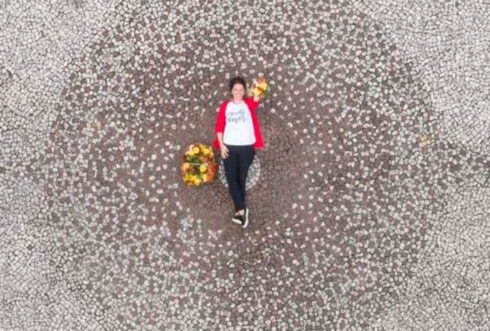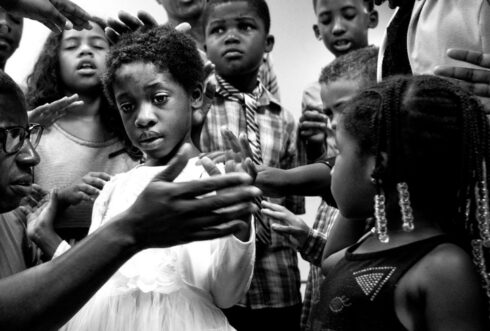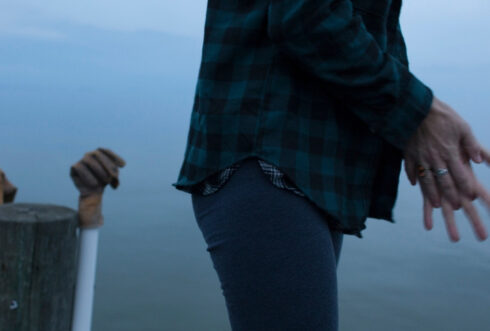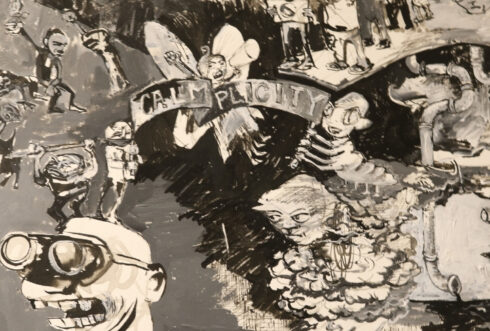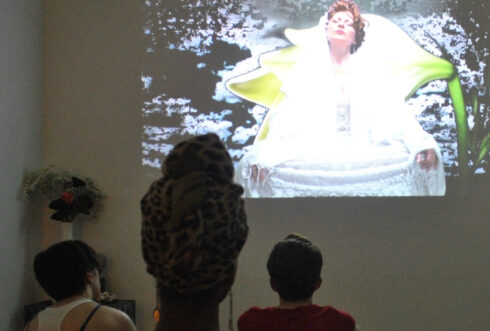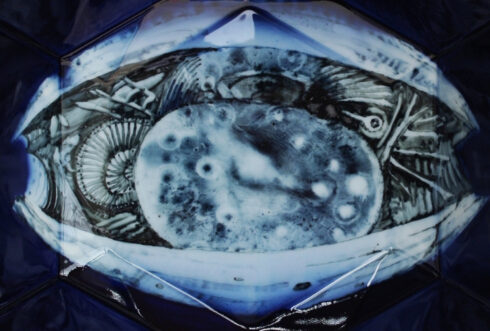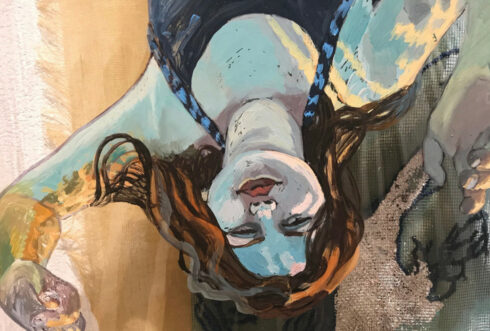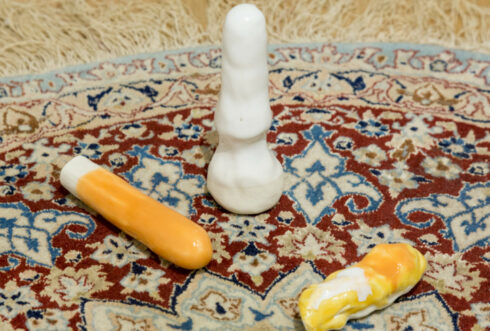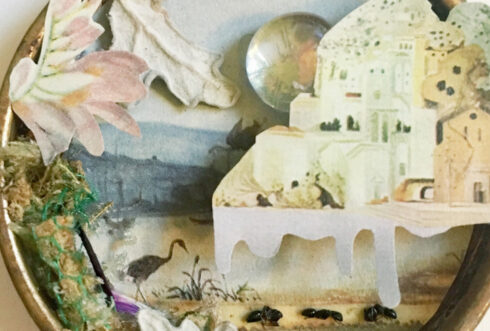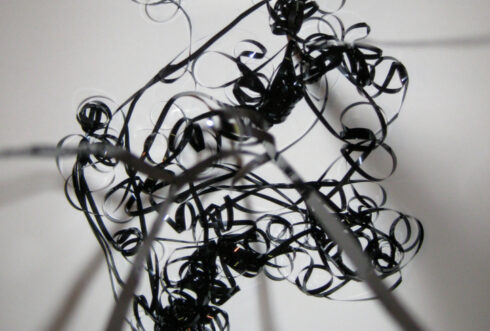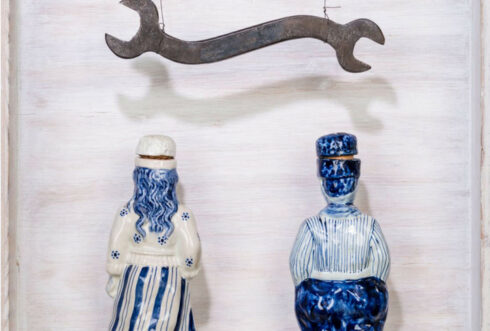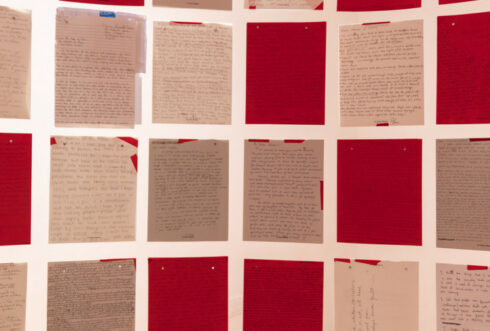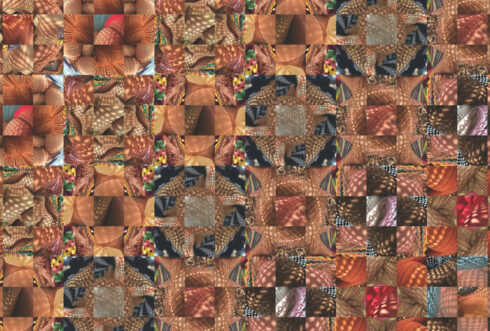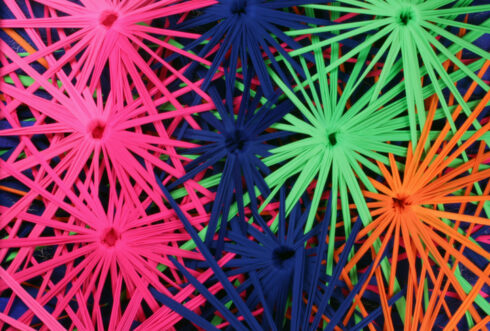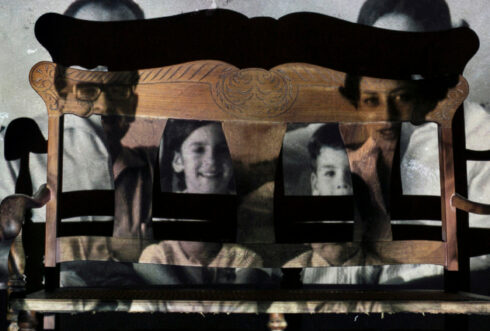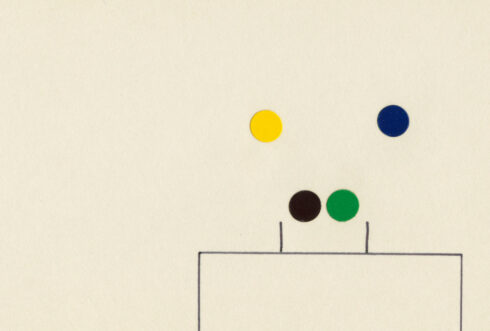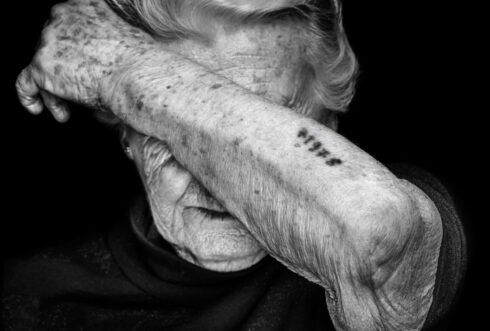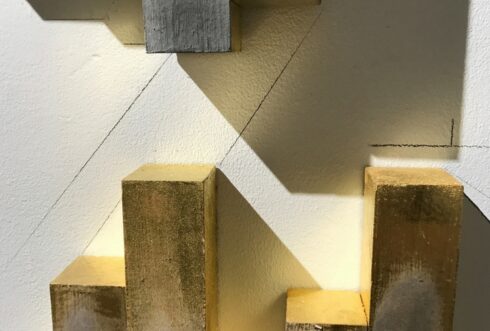Kei Ito
January 5-28, 2018
Only What We Can Carry
“Only What We Can Carry” is a series of 80+ Contact C-Prints of Japanese Internment Camp (Executive Order 9066) posters exposed with various everyday objects. These everyday objects represent what I would bring with me if I had one day to gather my belongings. This poster became a symbol of bigotry and paranoia towards a specific group of people, and it echoes in these times where these same prejudices have reemerged for another group of people. Denial and misjudgment lead by blinded authority is a phenomenon close to what we have been witnessing in recent political climates.
In the past, it may once have been a set of treasured letters brought to the camp during WWll. In these times, it could be a photo-filled cellphone or a laptop. But the suffocating decision of choosing between items of meaning and use to carry with you, or leave behind, must be the same. These objects, and these reaching gestures are all exposed with the poster, radiating through the C-prints like X-rays. They are juxtaposed together as a warning, a warning that bridges the mistakes of the past with our time in the present.
“Infertile American Dream” is a triptych of C-prints, which were created by exposing light-sensitive paper to sunlight on the day the 45th US president was elected.
Two contemporary issues revolving around the current political establishment that disturbs me greatly, both in a sense of my current situation and my family’s history, are nuclear war and immigration. As an artist from Japan living and working in America, immigration policies and views deeply impact my current life. The other issue, nuclear war, is even more personal for me since my grandfather survived the bombing on August 6th, 1945; the atomic bombing of Hiroshima. By his account, it seemed as though the sky was lit by hundreds of suns. On that day, the very fabric of life that he knew, his friends, family, and even the landscapes of the city were completely annihilated. Any trace of home seemed to never have existed, as if his home was never even built.
As these pieces exist in the same room, it truly portrays the terror of today’s world through my eyes. Blind fear directed towards to a group of people through prejudice and misunderstanding caused by media; the realization that the home, in both physical and spiritual sense, can be taken away as quickly as forty minutes by a single bomb and the chain reaction that follows. However, in the same time, these works are embodiment of the hope I carry in the decency in humanity. What may be destroyed may not be fully repaired, but we can learn from our mistakes, and use that knowledge to rebuild better homes and futures.
Kei Ito is a US-based photographer and installation artist who graduated from Maryland Institute College of Art (’16) with an MFA in Photography, following his BFA from Rochester Institute of Technology (‘14). Kei’s work addresses issues of generational connection and deep loss as he explores the materiality of photography as a medium. His recent work deals with the tragedy and legacy passed on from his grandfather who survived the atomic bombing of Hiroshima and passed away from cancer when Kei was 9 years old, as well as the ongoing threat of nuclear disaster. Kei’s works are in the permanent collections of institutions, including the Museum of Contemporary Photography in Chicago, and the Norton Museum of Art in Florida. His shown in major spaces including solo exhibitions at the Masur Museum of Art in Monroe, the Manifest Gallery in Cincinnati, CIIS in San Francisco, and 30 group shows internationally.

